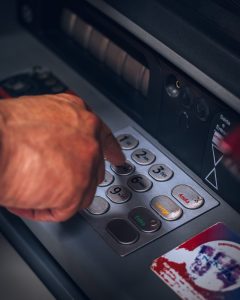Forex trading is a vast and dynamic market that involves buying and selling of currencies from around the world. As a beginner in the market, you may have experienced moments where your trades do the opposite of what you expect them to do. This can be frustrating, especially if you have made significant investments in the market. In this article, we will explore some of the reasons why forex may do the opposite of what you expect it to do.
1. Market Sentiments
One of the primary reasons why forex may do the opposite of what you expect it to do is market sentiments. Forex is a market that is heavily influenced by emotions and perceptions of traders. Market sentiments, also referred to as investor or trader sentiments, are the overall feeling or attitude of traders towards a particular currency. If traders feel positive about a currency, it is likely to appreciate in value, and if they feel negative, it’s likely to depreciate.
Market sentiments can change rapidly and without warning, especially in response to news or events that affect the market. For instance, a positive announcement from the central bank of a country can lead to a surge in the value of its currency, while a negative announcement can lead to a significant fall in its value. As a result, it’s essential to keep track of news and events that may affect the market to make informed trading decisions.
2. Technical Analysis
Another reason why forex may do the opposite of what you expect it to do is technical analysis. Technical analysis is the use of charts and indicators to predict future price movements. Forex traders use technical analysis to identify patterns and trends in the market that may indicate potential buy or sell opportunities.
However, technical analysis is not foolproof, and traders should use it in combination with fundamental analysis to make informed trading decisions. Technical analysis can give false signals, especially in volatile markets, leading to unexpected price movements in the opposite direction.
3. Liquidity
Forex is a highly liquid market, meaning that it’s easy to buy and sell currencies at any time. However, liquidity can also lead to unexpected price movements, especially in times of low liquidity. Low liquidity occurs when there are fewer buyers and sellers in the market, leading to wider spreads and higher volatility.
In such situations, traders may experience slippage, which is the difference between the expected price of a trade and the actual price at which it’s executed. Slippage can lead to unexpected losses, especially if you have placed a stop-loss order.
4. Leverage
Leverage is a common feature in forex trading, and it allows traders to control large positions with a small amount of capital. However, leverage can also lead to unexpected losses, especially if traders over-leverage their accounts. Over-leveraging occurs when traders use too much leverage, leading to a significant loss in their accounts if the trade goes against them.
As a beginner trader, it’s essential to use leverage wisely and avoid trading with more than you can afford to lose.
Conclusion
In conclusion, forex may do the opposite of what you expect it to do due to various reasons, including market sentiments, technical analysis, liquidity, and leverage. It’s essential to use a combination of fundamental and technical analysis to make informed trading decisions and keep track of news and events that may affect the market. Additionally, traders should use leverage wisely and avoid over-leveraging their accounts to minimize unexpected losses.





